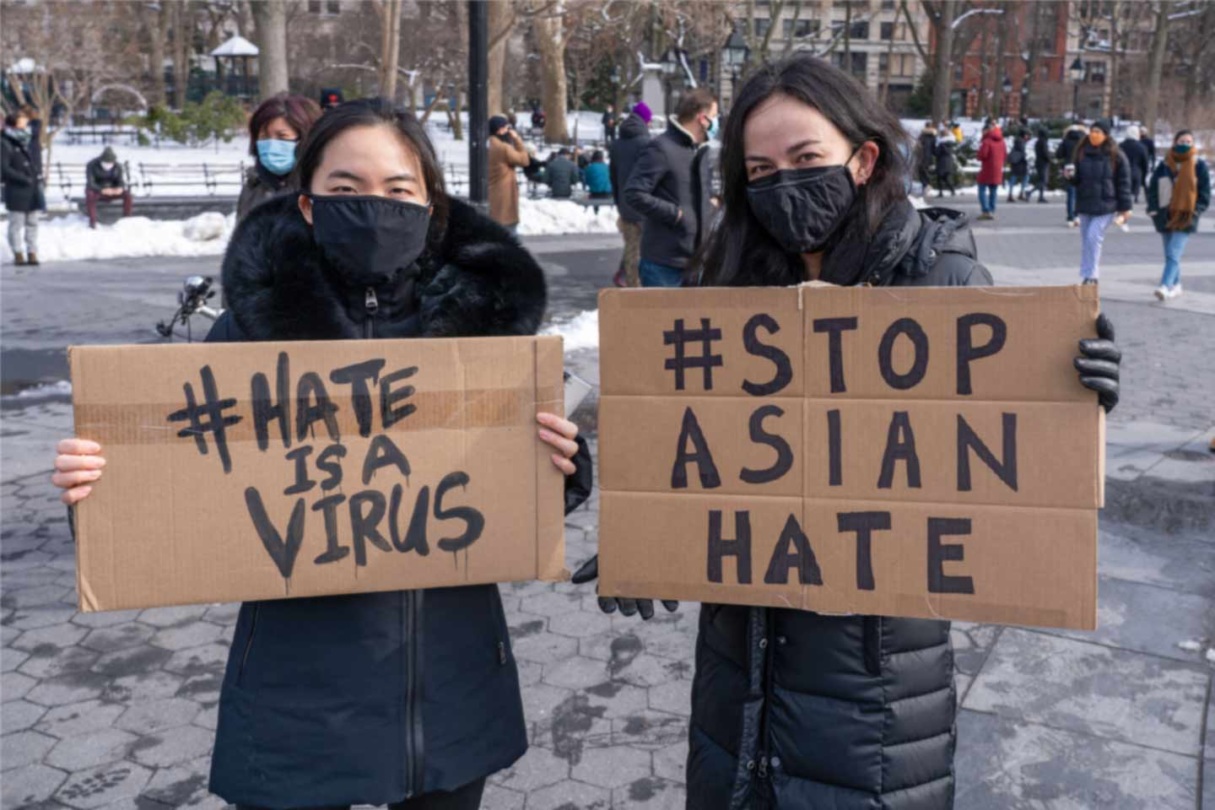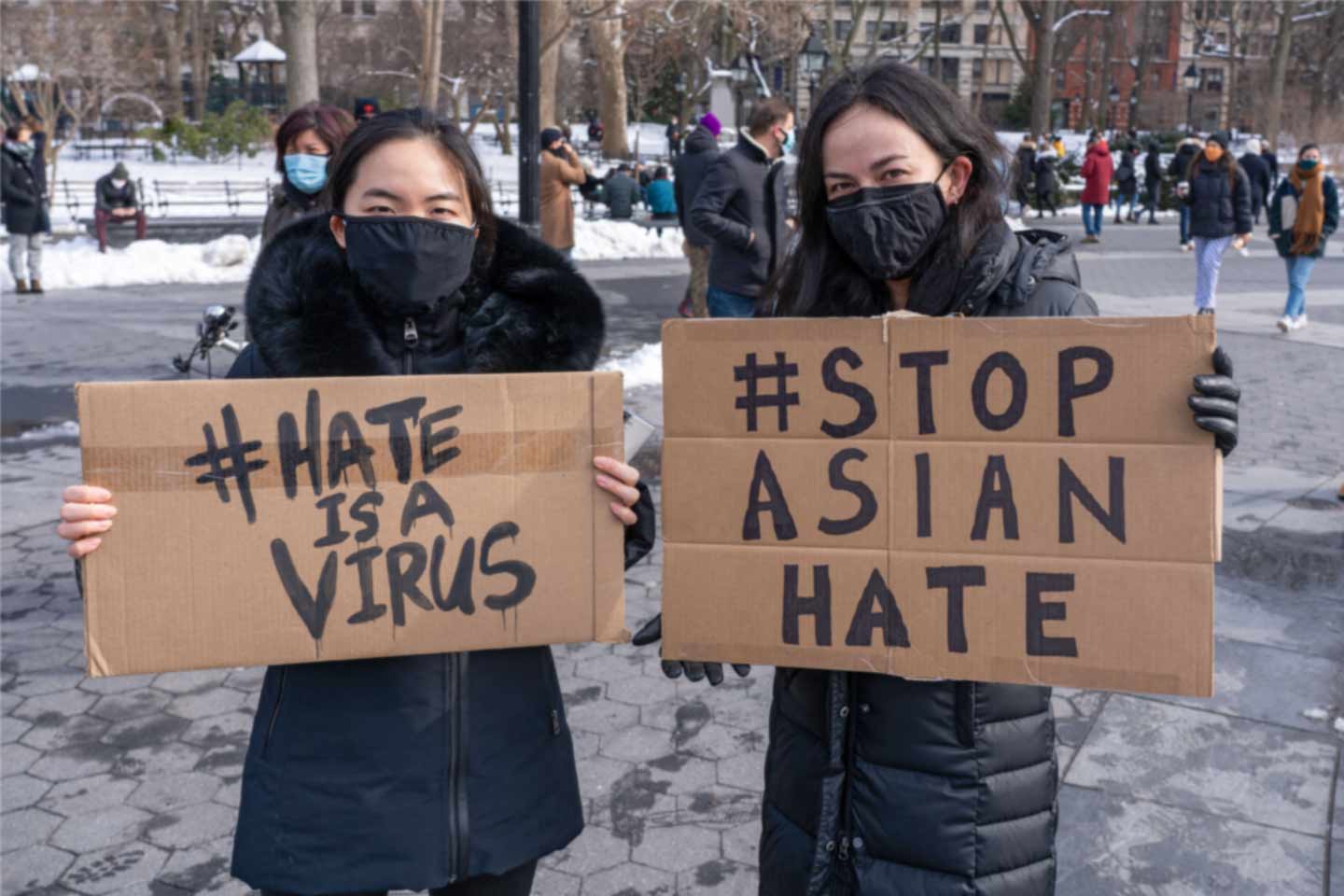
Behind the headlines: Atlanta shootings coverage fallout
By Suzannah Gonzales and Hannah Covington
This article is from this week’s issue of our Get Smart About News newsletter for the general public, which explores timely examples of misinformation as well as press freedom and social media trends and issues. Subscribe to our newsletters.
News coverage of the March 16 fatal shootings at Atlanta-area spas that occurred amid a recent spate of anti-Asian violence across the country spurred important debates over journalism ethics and news decisions — especially as the story first unfolded. Questions and criticisms of coverage highlighted several notable issues, including the bias and credibility of law enforcement sources; the need for more diverse news organizations, journalists and sources; and hesitation by newsrooms to call the shootings a “hate crime.”
 Protestors hold signs at the End The Violence Towards Asians rally in Washington Square Park on Feb. 20, 2021 in New York City. Credit: Ron Adar / Shutterstock.
Protestors hold signs at the End The Violence Towards Asians rally in Washington Square Park on Feb. 20, 2021 in New York City. Credit: Ron Adar / Shutterstock.
As the story developed, the Asian American Journalists Association (AAJA) published guidance for newsrooms covering the shootings. Its recommendations include providing context on the recent increasing violence, and understanding the history of anti-Asian racism. It also underscored the need to consult Asian American and Pacific Islander expert sources and to be careful with language that could contribute to “the hypersexualization of Asian women.”
AAJA reported that some newsrooms have questioned whether Asian American and Pacific Islander journalists will show bias or are “too emotionally invested” to cover the shootings. Calling such reports “deeply concerning,” it urged news organizations to empower these journalists “by recognizing both the unique value they bring to the coverage of the Atlanta shootings and the invisible labor they regularly take on, especially in newsrooms where they are severely underrepresented.”
Note: AAJA also released a pronunciation guide for Asian victims of the shootings.
Related:
- “The rush to report on Atlanta-area shootings amplified bias in news coverage” (Doris Truong, Poynter).
- “Connie Chung: The media is miserably late covering anti-Asian violence” (Alexis Benveniste, CNN Business).
- “‘Enough Is Enough’: Atlanta-Area Spa Shootings Spur Debate Over Hate Crime Label” (Bill Chappell, Dustin Jones, NPR).
- “Why don’t we know more about the Atlanta shooting victims?” (Ariana Eunjung Cha, Derek Hawkins and Meryl Kornfield, The Washington Post).
- “Teen Vogue’s New Top Editor Out After Backlash Over Old Racist Tweets” (Maxwell Tani, Lachlan Cartwright, The Daily Beast).